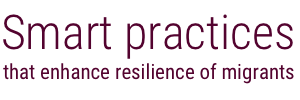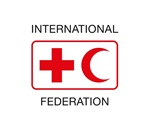Surveying migrants to understand needs and inform priority services. Surveys, including paper and phone based formats, provide a cheap and easy mechanism for feedback. They provide an important source of information to refine and improve the quality of services provided to migrants.
During population movement operations, the IFRC and National Societies undertake dedicated perception surveys or add specific questions to wider assessment surveys to learn the needs of migrants. Data from surveys collected by other organizations are also sometimes used, for example, the Hellenic Red Cross has used feedback results from the IOM to adjust programming. These surveys ensure up-to-date information on needs and perceptions of services provided and inform decisions regarding changes to existing or implementation of new services. A number of National Societies are using surveys to assess information needs, understand knowledge gaps (e.g., focus group discussion surveys and knowledge, attitudes and practices surveys) and evaluate services provided.
- Understanding information needs. European National Societies conduct short surveys of migrants to understand if the items being distributed respond to their actual needs. IFRC and the Hellenic Red Cross have also supported inter-agency surveys and are conducting phone-based surveys (ODK) and Focus Group Discussions to collect migrants’ feedback, perceptions and needs, including information needs.
- Understanding knowledge gaps. The Turkish Red Crescent Society distributed a migrant satisfaction survey to collect feedback on its community centre project. The survey revealed how people learned about the community centre, frequency of use, and the usefulness of different services.
- Incorporate migrant perspectives in responses. The Palestine Red Crescent Society conducts community surveys every two years to understand the priority needs and main areas of vulnerability of migrants. The surveys are conducted by trained volunteers based in the community who go door-to-door and collect information.
- The representativeness of the results is a challenge due to low response rates and lack of information on sample and population.
- Respondents of many nationalities require skilled interpreters, particularly for conducting focus group discussions and more qualitative surveys.
- The length of community surveys means that people are unwilling to answer all the questions on the surveys.
- The training and use of volunteers based in beneficiary communities to administer surveys by the Palestine Red Crescent Society probably raised response rates and allowed discussion of sensitive issues that would otherwise have probably remained undetected.
- It is preferable to make most questions closed, because this permits more effective analysis. Questions that require elaboration can have additional space dedicated to explanation.
- Combining phone-based surveys with more qualitative interviews and focus group discussions provides a more complete understanding of migrants feedback and needs.

